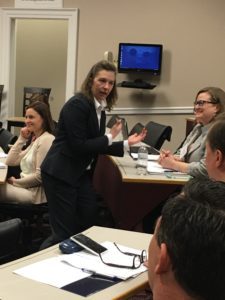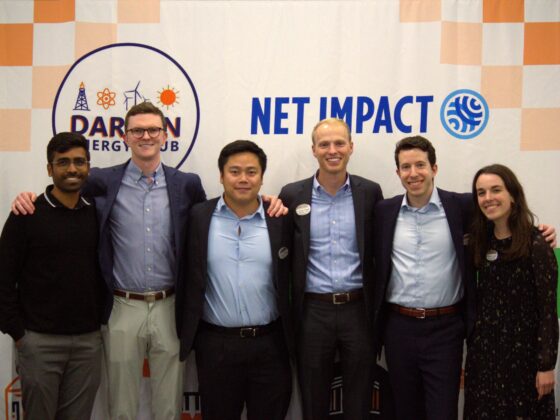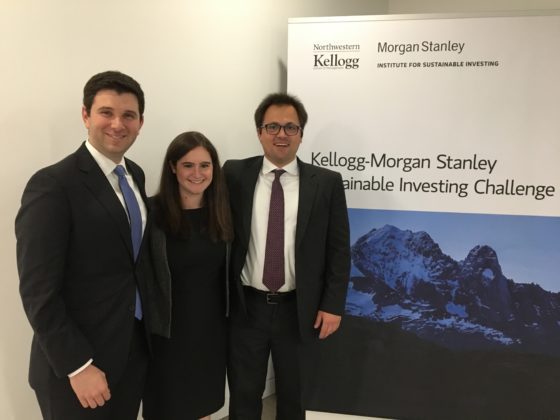By Tori Schucheng Yang
How can Pay for Success models be used to improve project outcomes? And how can these public-private financing models help foster innovation and positively impact communities?
These were some of the questions discussed by state government officials, service providers, philanthropists, impact investors and business leaders who gathered at the 2017 Pay for Success and Social Impact Finance 2.0 Conference, an event hosted by Social Entrepreneurship at the University of Virginia, the Darden School of Business Institute for Business in Society and Frank Batten School of Leadership and Public Policy in partnership with the Federal Reserve Bank of Richmond, Quantified Ventures and Third Sector Capital Partners.
The conference began the evening of 9 February when the University of Virginia Pay for Success Lab, which identifies and advances impactful Pay for Success project models in localities across the nation, announced it had become the first university-based organization to join the America Forward coalition, a network of more than 70 social entrepreneur organizations that champion innovative, effective, and efficient solutions to the country’s most pressing social problems.
The conference’s February 10 programming was held at the Darden School and included presentations by UVA faculty and external experts, small group sessions, a plenary case discussion, and a fireside chat on the future of social impact programming.
Professor Mary Margaret Frank, an academic director for Darden’s Institute for Business in Society, addressed the crucial role of public-private partnerships and cross-sector collaboration in addressing complex social issues. As she neared the end of her presentation, Frank introduced Andrea Barrios, a 2016 Darden alumna, to share her story of developing a Pay for Success model aimed at improving HIV patient outcomes in the Washington, D.C., area. Barrios discussed her team’s experience building their Red Ribbon Fund model, which took second place at the 2016 Kellogg-Morgan Stanley Sustainable Investing Challenge in Hong Kong.
Jen Giovannitti, a regional community development manager at the Federal Reserve Bank of Richmond, delivered an introductory speech on why Pay for Success models can be a viable option to address social issues.
Sally Hudson, a UVA economist who studies performance in public sector labor markets, presented on ways to measure impact and other methodological considerations that can boost the efficacy of Pay for Success programs. Hudson stressed that community programs should focus on actual impact versus inputs, which often get confused during program implementation and evaluation.
Jay Shimshack, associate professor of public policy and economics at UVA with a specialization in applied microeconomics for public policy, provided a comprehensive overview on how to evaluate the costs and benefits of programs, while summarizing various approaches for evaluating benefits.
“You wouldn’t ask a business to invest in a project that does not make as much money as if they left it in the bank and collected interest,” said Shimshack. “The same logic applies to Pay for Success.”
Frank brought all of the morning’s conference sessions together by reviewing the risks and rewards of Pay for Success models through the lens of the investors. According to Frank, “the role of the investor is to evaluate the risks and returns of the project … and attitudes toward risk vary” based on monetary returns, past experience, leadership and other factors.

Frank also facilitated a plenary case discussion and experiential learning exercise using the Red Ribbon Fund model. Conference attendees played the roles of key stakeholder groups, including service providers (HIV/AIDS clinics), intermediaries (Red Ribbon Fund), private investors, program evaluators and outcome payors (government) to review the model from the perspectives of the various partners involved.
Applying the concept of risk-return analysis addressed in Frank’s morning session, the cohorts shared the potential risks they identified during their small group discussions and proposed ideas on how to manage those risks. Incorporating insights from her research on public-private partnerships and multi-sector collaboration, Frank noted that “trust is at the basis of everything.”
When one of the participants raised a public relations concern about an aspect of the model in which AIDS patients receive payments for each phase of the immunotherapy they complete, Frank pointed out that, as a financial expert, she “may not have thought twice” about the issue. “Our professions often lead to blind spots. And as much as we may be experts in our own areas, we need other experts to help see all of the various angles and figure it all out.”
“The point here is that you do most of your learning when you talk to each other,” Frank said. “Part of the Darden Institute for Business in Society’s role is figuring out how we partner and translate between sectors to provide benefits to society,” she said. Addressing collaborations between different sectors and stakeholders, Frank advised, “Language is important. You have to be able to talk to each other in terms you all can understand.”
The program closed with a fireside chat featuring four panelists with expertise on social impact investment. Attendees and speakers discussed the current state of the social impact industry and the future of Pay for Success models.
“There is no such thing as an expert in social impact bonds,” said Eric Letsinger, founder of Quantified Ventures, with more than 25 years of leadership and direct management experience in the social impact industry. “This is brand-new, and the sky is the limit on where these models can go.”





